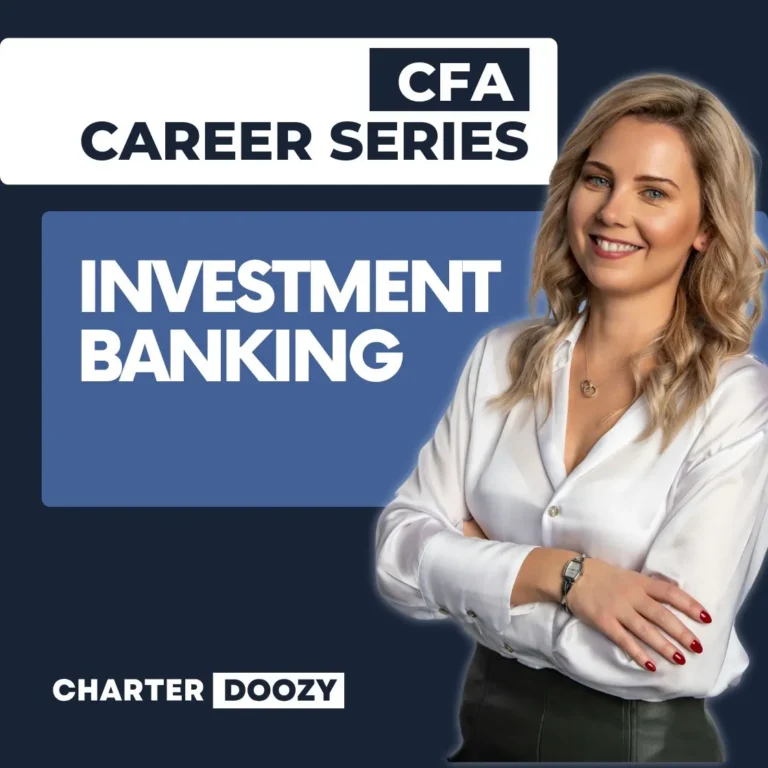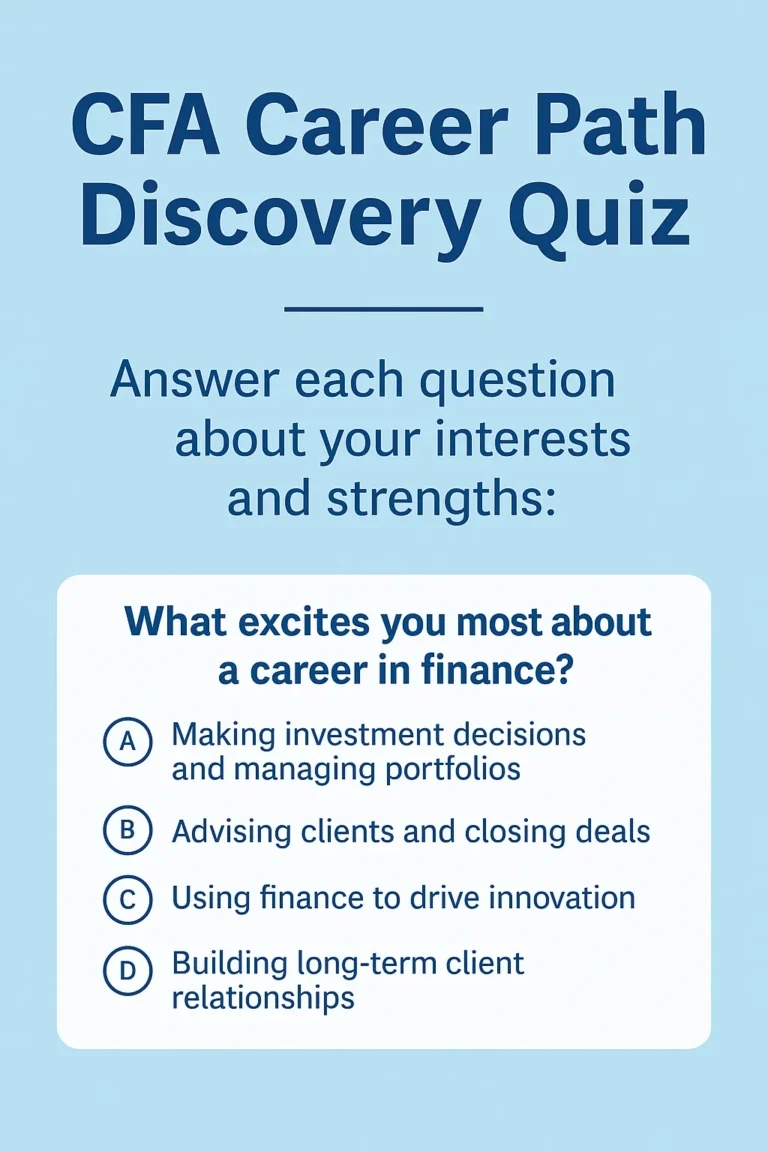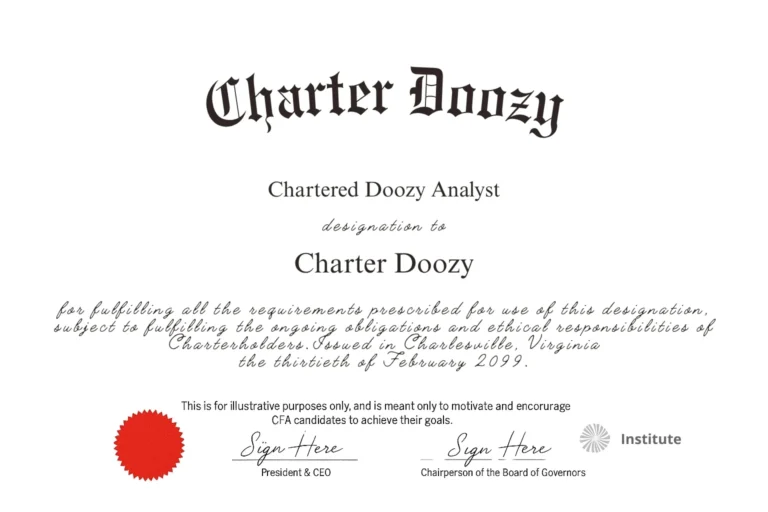Investment banking is one of the most competitive and high-profile career paths in finance. It offers fast learning, strong compensation, and direct exposure to major financial transactions. But it also comes with demanding hours, intense pressure, and a steep hierarchy.
This article is part of the CFA Career Series, designed to help you explore where the CFA charter can take you.
Here, we break down what investment banking actually involves, who it suits, how CFA candidates fit in, and what to expect if you pursue this path.
If you’re considering a high-stakes role at the center of global capital markets, this is where to start.

What Is Investment Banking?
Investment banking focuses on helping companies raise capital, restructure their businesses, or buy and sell other companies.
It plays a critical role in the financial system by connecting those who need capital with those who can provide it.
At its core, investment banking is about deals.
These include mergers and acquisitions (M&A), initial public offerings (IPOs), debt issuances, and other complex transactions.
Banks act as advisors, intermediaries, and underwriters.
Investment bankers work directly with CEOs, CFOs, private equity firms, and government entities.
They provide strategic advice, build financial models, and lead negotiations to close high-value deals.
The work is fast-paced, collaborative, and high-stakes.
It requires both technical expertise and strong communication skills.
While the junior years are demanding, the learning curve is steep – and the exposure is unmatched.

Core Responsibilities
Investment bankers wear many hats, but their day-to-day work generally falls into a few key areas.
Financial modeling and valuation
Bankers build detailed models to assess the value of companies, projects, or potential deals.
This includes discounted cash flow (DCF) analysis, comparable company analysis, precedent transactions, and leveraged buyout (LBO) models.
Pitch books and presentations
Teams prepare client-facing materials that explain market trends, strategic options, or proposed transactions.
These documents are used to win new business or support ongoing deals.
Deal execution
Once a deal is live, bankers coordinate all the moving parts – from due diligence and legal review to negotiations and regulatory approvals.
This requires working across teams, time zones, and disciplines.
Capital raising
In equity and debt capital markets, bankers help clients issue new shares, bonds, or other instruments.
This often involves preparing public filings, pricing securities, and marketing offerings to investors.
Strategic advisory
At the senior level, bankers provide high-level advice to executives and boards.
This includes evaluating strategic alternatives, navigating complex negotiations, and identifying growth opportunities.
Investment banking is detail-oriented, time-sensitive, and client-driven.
Each deal is different, but the process (analyze, pitch, execute, close) remains the same.
Doozy Digest
A newsletter for CFA candidates
Subscribe for:
✔ Insightful tips
✔ Expert advice
✔ Career motivation
✔ Exam inspiration
Stay updated and subscribe today!

Why CFA Candidates Are a Good Fit
Investment banking isn’t the traditional endgame for CFA Charterholders – but that’s changing.
More banks are hiring CFA candidates, especially for roles that require strong analytical skills and financial modeling.
The CFA Program gives candidates a deep foundation in key areas that align closely with the day-to-day work of an investment banker.
Financial reporting and analysis
At Level I and II, the curriculum covers income statements, balance sheets, and cash flow analysis in detail.
These are essential tools for evaluating a company’s financial health – core to both M&A and capital raising.
Corporate finance
Topics like cost of capital, capital budgeting, and working capital management are directly relevant when advising clients on growth strategies, financing structures, or business combinations.
Equity and fixed income valuation
Investment bankers rely on valuation techniques to price deals and assess market comparables.
The CFA curriculum covers DCF models, relative valuation, and bond pricing – all key parts of the analyst and associate toolkit.
Quantitative methods and economics
Understanding interest rates, macroeconomic indicators, and time value of money helps bankers advise on timing, structure, and potential risks of transactions.
Ethics and professionalism
Bankers operate in high-pressure environments, often with sensitive or confidential information.
The CFA Program’s emphasis on ethical conduct, transparency, and fiduciary responsibility is a valuable overlay… especially in client-facing roles.
While the CFA charter isn’t required for investment banking, it adds depth.
It signals a serious commitment to finance and builds credibility – particularly for lateral candidates, career switchers, or those without an MBA.
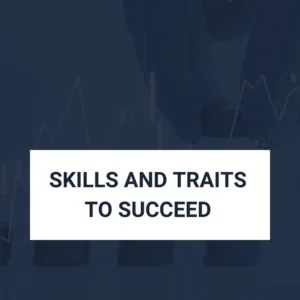
Skills and Traits That Help You Succeed
Investment banking is demanding.
The job requires much technical knowledge.
It also calls for endurance, precision, and the ability to thrive under pressure.
Success depends on how well you combine hard skills with personal resilience.
Technical proficiency
Bankers must master Excel, financial modeling, and valuation techniques.
You’ll spend long hours building DCFs, cap tables, and sensitivity analyses.
Accuracy matters. A single mistake can derail a pitch or delay a deal.
Financial fluency
You need to understand income statements, balance sheets, and market drivers inside and out.
This fluency lets you assess deals, spot red flags, and speak the language of clients and investors.
Attention to detail
Investment banking is meticulous work.
Formatting, assumptions, footnotes.
Every detail must be correct.
Sloppy work is noticed, and it’s rarely forgiven.
Communication skills
You’ll present to executives, write internal memos, and negotiate with multiple stakeholders.
Clear, concise communication (both written and verbal) is essential.
Endurance and time management
Long hours and shifting deadlines are part of the culture.
You’ll often juggle multiple live deals, pitches, and client requests.
Prioritization and stamina are key.
Commercial instinct
As you move up, your value will depend on your ability to originate deals, understand client needs, and identify strategic opportunities.
Thinking like a business partner (not just an analyst) is critical.
Team collaboration
Deals are team efforts.
You’ll work closely with colleagues across functions, hierarchies, and time zones.
Being responsive, reliable, and professional is essential to earning trust.
Investment banking rewards those who combine raw intellect with drive, discipline, and a willingness to do what it takes… especially in the early years.
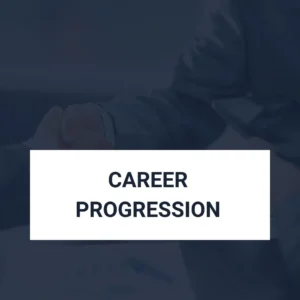
Typical Career Progression
Investment banking follows a structured career path.
While timing may vary by firm and performance, most professionals move through clearly defined stages – each with its own responsibilities and expectations.
Entry-Level Roles
Investment Banking Analyst
Most bankers start here after completing an undergraduate degree.
Analysts handle the bulk of the financial modeling, industry research, and presentation prep.
The work is intense, the hours are long, and attention to detail is critical.
Analysts typically stay in the role for 2–3 years before moving up, leaving for private equity or hedge funds, or pursuing an MBA.
Associate (Post-MBA or Lateral Hire)
Associates manage analysts, review their work, and take greater responsibility for deal execution and client communication.
Associates begin to develop a point of view and are expected to understand the full scope of a transaction.
This is often the proving ground for leadership potential.
Mid-Level Roles
Vice President (VP)
VPs bridge the gap between the senior bankers and execution teams.
They oversee multiple deals at once, manage client relationships, and often take the lead in negotiations and internal approvals.
VPs are expected to be proactive, strategic, and commercially aware.
Senior Roles
Director / Executive Director
At this level, bankers focus more on business development.
They work closely with managing directors to source new deals, build client trust, and provide high-level advisory.
Execution is still part of the job, but leadership and revenue generation become the primary focus.
Managing Director (MD)
MDs are responsible for bringing in deals.
Their value lies in relationships, reputation, and revenue.
They pitch to CEOs and boards, originate business, and guide deals from idea to closing.
The stakes are high, but so is the reward.
Progression in investment banking depends on performance, leadership, and your ability to contribute to the top line.
The path is intense.
For many, it’s worth it.

Where You’ll Work
Investment bankers work in a range of firms, from global powerhouses to niche boutiques.
Each offers a different experience in terms of deal flow, culture, and exposure.
Bulge Bracket Banks
These are the large, global institutions – firms like Goldman Sachs, JPMorgan, Morgan Stanley, and Citi.
They handle massive deals, serve multinational clients, and offer formal training programs.
The work is structured, the resources are vast, and the competition is fierce.
Elite Boutiques
Firms like Evercore, Lazard, Moelis & Company, and Centerview specialize in advisory work, particularly M&A.
They tend to be smaller, more focused, and often outperform in deal quality and compensation.
You’ll likely get more responsibility earlier in your career, with fewer internal layers.
Middle-Market Banks
These firms advise mid-sized companies and private businesses.
Examples include Houlihan Lokey, Raymond James, and Lincoln International.
They offer strong client interaction, a broad variety of transactions, and a more hands-on environment.
Sector Specialists and Advisory Firms
Some investment banks focus on specific industries like healthcare, energy, or technology.
Working in a sector-focused firm lets you develop deep domain knowledge and build a strong reputation in that niche.
Corporate Development
Some CFA candidates move into corporate development roles inside companies.
These teams handle M&A and strategic partnerships internally, often hiring former bankers who want better hours and long-term exposure to a single industry.
Geography
Investment banking is concentrated in global financial hubs (New York, London, Hong Kong, and Singapore) but strong regional markets also exist in Toronto, Frankfurt, Sydney, Mumbai, and others.
Your experience will vary depending on the firm’s size, culture, and focus.
But the core skills of investment banking are transferable across all.

Compensation and Lifestyle
Investment banking offers some of the highest compensation in the finance industry… especially early in your career.
But it comes at a cost: long hours, high stress, and limited flexibility.
Base Salary
Entry-level analysts in top U.S. banks typically earn $100,000 to $120,000 in base salary.
Associates often earn $150,000 to $200,000.
These numbers rise quickly as you move up the ladder, with Vice Presidents earning $250,000 or more in base pay.
Bonuses
Bonuses can match, or even exceed, base salary.
High performers at all levels are rewarded with significant year-end payouts, often tied to firm revenue, deal flow, and individual contribution.
Managing Directors can earn $500,000 to several million dollars annually, depending on the size and success of their book of business.
Lifestyle
Investment banking is demanding.
It’s common for junior bankers to work 70 to 100 hours per week.
Weekend work and late nights are expected, especially when deals are live.
The pressure is constant.
Deadlines move.
Clients change direction.
Priorities shift at a moment’s notice.
While the lifestyle becomes more manageable in senior roles, the responsibility (and stress 😰) grows.
Travel, client meetings, and deal oversight replace long hours in Excel, but the stakes remain high.
This path isn’t sustainable for everyone, but for those who thrive under pressure and are motivated by the rewards, it can be incredibly lucrative.
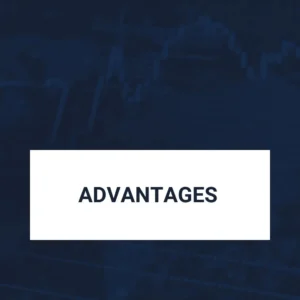
Advantages of This Career Path
Investment banking offers a unique mix of challenge, prestige, and opportunity.
It’s a demanding career, but for the right candidate, the rewards go beyond just financial compensation.
Fast learning curve
You’ll learn more in two years of investment banking than most people do in five.
The exposure to deals, financial models, and strategic decision-making happens early, and often.
High compensation
Few entry-level finance roles offer pay on par with investment banking.
Bonuses are significant, and long-term earnings potential is among the highest in the industry.
Strong exit opportunities
After two or three years, many bankers move into private equity, hedge funds, venture capital, or corporate development.
These roles value the skills and experience developed in banking.
Exposure to senior leadership
Even at junior levels, you’ll support meetings and work with C-suite executives.
This builds confidence and communication skills that carry forward in your career.
Prestigious resume signal
Experience at a top investment bank opens doors.
It tells future employers that you can handle pressure, produce quality work, and contribute in a high-performance environment.
Investment banking accelerates your development and sets you up for a broad range of future roles… both inside and outside of finance.

Drawbacks to Consider
While investment banking offers strong rewards, it also comes with real trade-offs.
It’s not a path to take lightly.
And it’s not the right fit for everyone.
Long hours and lifestyle strain
Bankers often work 70 to 100 hours per week.
Nights and weekends are part of the job, especially during live deals.
Work-life balance is limited, and burnout is a real risk.
High-pressure environment
Deadlines are tight. Expectations are high.
Mistakes (no matter how small) can have real consequences.
The pace is relentless, and stress levels can be intense.
Repetitive junior work
In the early years, much of your time is spent refining pitch decks, updating models, and responding to urgent client requests.
The learning is valuable, but the tasks can feel repetitive and transactional.
Steep hierarchy
Most firms have a rigid structure, with limited autonomy for junior team members.
You’ll be expected to execute, not question – at least at first.
Competitive culture
Investment banking attracts top performers.
That means you’ll be surrounded by smart, driven individuals.
But you’ll also face constant pressure to stand out and deliver.
Before pursuing this path, it’s worth asking yourself if you’re ready for the pace, pressure, and sacrifices it requires.
It’s not only about working hard.
It’s also about sustaining it.

How to Break In
Breaking into investment banking is competitive, but not impossible.
Success depends on a mix of credentials, technical skills, networking, and preparation.
Qualifications and certifications
A strong academic background is key.
Most bankers have degrees in finance, economics, accounting, or engineering.
Target schools help, but they’re not essential if you can stand out in other ways.
The CFA charter isn’t required for banking, but it can be a powerful differentiator… especially for lateral hires or candidates without an MBA.
It demonstrates technical strength, work ethic, and a long-term commitment to finance.
For associates, an MBA from a top business school is still a common entry point.
However, lateral moves from other finance roles (like audit, valuation, or corporate finance) are increasingly common, especially when supported by a CFA designation.
Build technical skills
Banking interviews test your knowledge of accounting, valuation, financial modeling, and market mechanics.
Online courses like Breaking Into Wall Street, Wall Street Prep, or Macabacus can help you prepare.
Know how to build a DCF.
Understand how to calculate enterprise value.
Be ready to walk through a merger model or explain a recent deal.
Network strategically
Most offers come through referrals or personal connections.
Reach out to analysts and associates on LinkedIn.
Attend CFA Society events.
Ask for informational interviews and follow up.
Persistence and professionalism go a long way.
People want to help… but only if you come prepared.
Apply early and often
Recruiting timelines are tight, especially for internships and graduate programs.
Apply early, tailor your resume, and be ready for technical questions from day one.
Investment banking is hard to break into, but once you’re in, you’re in.
The experience you gain can open doors for the rest of your career.

Resources and Next Steps
If you’re serious about investment banking, there are plenty of ways to prepare and improve your odds.
Build your knowledge base, refine your technical skills, and connect with people in the industry.
Books
Investment Banking: Valuation, LBOs, and M&A by Joshua Rosenbaum & Joshua Pearl
Monkey Business by John Rolfe and Peter Troob (an honest, humorous take)
Barbarians at the Gate by Bryan Burrough and John Helyar (classic M&A case study)
Online learning and tools
Breaking Into Wall Street – Valuation and modeling training
Macabacus – Excel shortcuts, templates, and corporate finance resources
Wall Street Oasis – Forums, interview prep, and career guides
Coursera / Udemy – Courses on Excel, financial analysis, and modeling
Podcasts and media
M&A Science – Real-world discussions on dealmaking
The Deal Room – Insights from legal and financial professionals in M&A
The Wall Street Journal and Financial Times – For deal news and capital markets updates
CFA curriculum alignment
Level I & II: Corporate Finance, Equity Investments, Financial Reporting & Analysis
Level III: Focus shifts away from technicals, but reinforces ethics and professional judgment… key in client-facing deal roles
Professional communities
Join your local CFA Society and attend events
Follow investment banks on LinkedIn
Engage with professionals online and ask informed questions
Small, consistent steps (reading, networking, learning) can make a big difference.
The earlier you start, the better prepared you’ll be when opportunity comes.
Take the CFA Career Path Discovery Quiz
Still deciding if investment banking is right for you?
The CFA Career Path Discovery Quiz is a quick, insight-driven tool that matches your personality, preferences, and strengths with eight finance career paths. Based on your answers, you’ll receive a breakdown of where you best fit—whether that’s investment banking, portfolio management, fintech, or something else entirely.
It’s a simple way to step back, reflect, and explore paths that align with your goals.
Final Thoughts
Investment banking is a fast-paced, high-stakes career path.
It demands long hours, sharp thinking, and relentless execution.
But for those who thrive under pressure and enjoy dealmaking, it offers unmatched exposure, financial upside, and long-term career mobility.
CFA candidates bring a strong analytical foundation and a commitment to mastering the technical side of finance.
While the path into investment banking can be competitive, the skills you develop (both in the CFA Program and beyond) can set you apart.
Whether you’re aiming to break in directly or use it as a launchpad for future roles, investment banking remains one of the most powerful platforms in the financial world.
